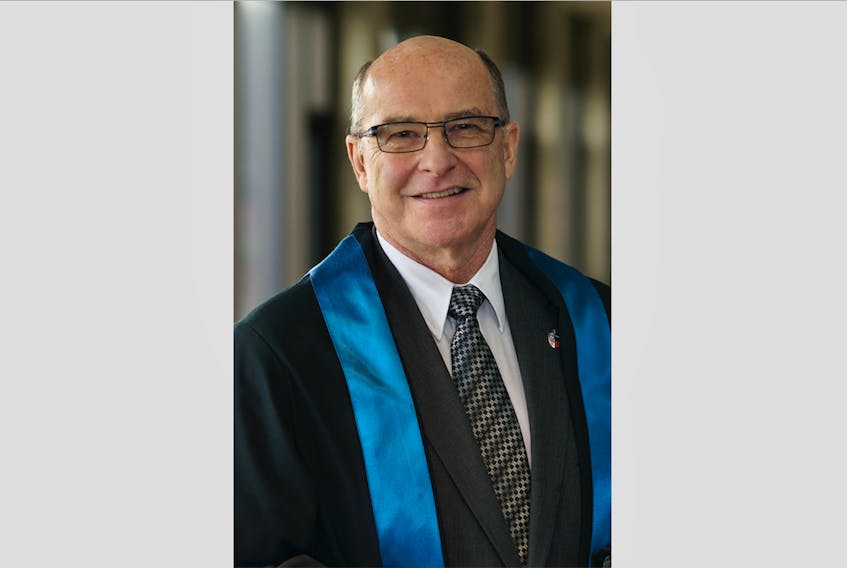While the holiday season is a time for celebration and coming together as families and communities, that kind of expectation can weigh heavy on those who have experienced loss.
Queen’s College provost and vice-chancellor Rick Singleton drew on a powerful quote by internationally known author and grief counselor, Earl Grollman, when offering advice on grieving a loss during the Christmas season.
“Grief is love’s unwillingness to let go,” Singleton said during a recent phone interview.
Grief is a normal, natural and healthy response to loss and helps people make the journey from the way life used to be to the way it’s going to be.
Christmas is the time of year, Singleton said, when people will experience grief most intensely.
“Many have found the anticipation of the season is worse than Christmas Day itself,” he said.
Loss comes in many forms and while grief is often associated with the death of a loved one, other losses that cause grief include relationship break-up, job loss and loss of independence.
“We are like the strands of a rope, woven together. When one strand is unwoven, it’s clear things are not the way they used to be,” he said.
There are no short cuts or quick fixes along the journey from the old normal to the new normal, he said.
“Grief is nature’s way of allowing us to hold on the good things of the past while we prepare and adjust for the future.”
Singleton has a PhD in Health Ethics and a Doctor of Ministry degree. He has four decades of experience working with people through pastoral care and in the health care system. He has led training seminars in grief and bereavement and has developed multimedia resources to help people establish bereavement support programs in their communities.
In providing information he has put together about grief, Singleton notes that families often dread the first and second Christmas seasons after the loss of a loved one. They fear the intensity of the season will cause them to lose control, be overly emotional, or that they will feel so miserable that it would upset others.
People who are grieving should let relatives and friends know that it’s OK to mention the deceased one’s name, he said, and that if you get emotional, that’s fine too.
For most people grief comes in waves and is triggered by special occasions such as Christmas. When asked about celebrating while grieving, Singleton said it’s unrealistic to believe you can skip the holidays altogether. Instead, he said, face them and make plans with your loved ones.
It often helps to talk about what you and your family will do regarding such things as gift-giving, parties, card-sending, decorating, entertaining and visiting.
“Plan to do things you and your family feel comfortable doing,” he said. “If you cancel activities it may leave you with a lot of free time to feel even more lonesome and miserable.”
It’s also OK to remember what you’re not comfortable doing, he said, and to feel joy in your memories.
Both Christians and non-Christians find comfort in their religious beliefs and spiritual practices, Singleton said. Participating in community events to help you get through the holidays can also be beneficial.
“I commend people in health care systems, in church and community groups who put on events such as coping with the holidays… these events connect people with others and help verify that, what you’re going through is very difficult but is very typical,” he said.
Furthermore, people who are grieving are doing a lot of work.
Grieving is mentally draining and physically exhausting, he said, and it’s important that people take care of themselves and find ways to relax.
Canadian author Lucy Maud Montgomery once said, “Nothing is ever lost to us as long as we remember it.”
Many families find comfort in remembering their deceased loved one in a special way at Christmas, Singleton said.
“It could be starting a new tradition or deciding to take a few moments to say a few words about the person, or lighting a candle… because, sometimes, when we gather for special occasions, the ones who are most present are the ones who are not there,” he said.








